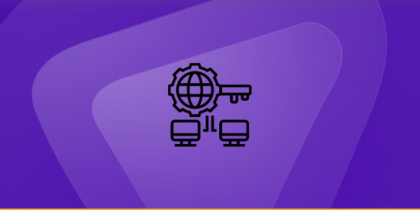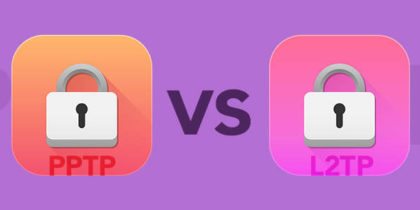The Internet brings a plethora of advantages to people from all walks of life, but it isn’t without some degree of peril. While it better connects the world and democratizes information, the Internet also allows individuals to hide behind a mask of anonymity.
According to a study from the Pew Research Center, 95% of teens are connected to the internet, of which 85% are social media users. As a majority of teens have access to the internet, they are increasingly susceptible to online attacks such as cyberbullying and cyberstalking.
The study reveals that a majority of cyberbullying incidents take place on popular social media platforms such as Instagram, Facebook, and Snapchat. As a result of cyberbullying, the victims have developed social anxiety, depression, and engaged in self-harm.
With over 45% of children admitting to having experienced bullying online, only 2 in 10 victims inform their parents or teachers of such online attacks. This goes to show the increasing need for awareness regarding the menace and how parents should educate their children about such online dangers. Observe Stop Cyberbullying Day this June 19th and spread the message among your friends and family.
Cyberbullying isn’t exactly a new trend, but it’s multiplying in recent times due to the rise in social media use. Unfortunately, not enough is being done to fight back – even though the consequences can be far-reaching for victims of cyberbullying!
With people living in a world where the Internet is a vital part of their daily lives, it’s now more important than ever to talk about cyberbullying and how to prevent yourself from falling victim to it. The first step is to secure your digital identity.
Cyberbullying is a virtual form of harassment that has real-life negative implications.
A cyberbully usually employs smartphones, personal computers, laptops, and tablets to bully someone his target. In essence, cyberbullying is a form of physical bullying and has negative physical effects on victims, such as lower self-esteem, increased depression, and feelings of powerlessness. The primary intention of cyberbullying is to hurt, threaten, embarrass, annoy, blackmail, or otherwise target someone, usually a minor.
Whether it’s bullying or cyberbullying, both have an unacceptable place in our society. As elders, it’s our job to ensure no one goes through this menace.
Getting bullied on the internet is one thing, just recently a 9-year-old Australian boy named Quaden Bayles, who has achondroplasia, a form of dwarfism was bullied in his school. His mom uploaded the video on the internet to raise awareness of bullying and the detrimental effects it has on the person.
The video has millions of views and has garnered support from celebrities. A GoFundMe page has raised over $200,000+ to send Quaden to Disneyland and for any other help he needs. Watch the video:
Why Has Cyberbullying Escalated?
Dissimilar to conventional bullying, various factors have led to an increase in cyberbullying, including:
– Widespread Publicity – Since cyberbullying takes place on a public platform as compared to conventional bullying, it becomes more embarrassing for the victim and gives more satisfaction to the bully.
– Online Anonymity – Since the bully has masked themselves behind a screen name, a computer screen, or a cell phone, it entices them to be fearless as they’re anonymous online. On the other hand, from the eyes of a person who is cyberbullied, anonymous cyberbullying escalates the feelings of isolation, distress, and continuous tormenting about the wrongdoer’s identity.
– Feeling of Betrayal – Since the individuals have no power over who posts their information online, or what is being talked about them, they may feel desperate to get that information taken down from the web. Above all, when it does get removed, there are dozens of people who have already seen it.
– Hasty Gawkers – The nature of cyberbullying is public, as there are several more bystanders when compared with traditional bullying. This drastically increases the impact of bullying and becomes more enticing for a cyberbully.
All these factors maximize the evildoers” plan and are the primary reasons why the prevention of cyberbullying has to be taken seriously. After all, a staggering 34% of students have reported experiencing cyberbullying. If that’s not troubling and worrisome, then I don’t know what is.
Preventing cyberbullying takes more than being sympathetic to the victim. It requires creating awareness and educating teens about the negative impacts of cyberbullying and encouraging the victims to speak up. It is easier said than done since adolescent girls are more likely to have experienced cyberbullying in their lifetime (40.6% compared to 28.2%).
The type of cyberbullying tends to be different among genders; girls are more likely to post mean comments online, while boys are more likely to post hurtful pictures or videos online.
Parents need to play a pivotal role in this matter by ensuring they have a friendly and open relationship with their kids, so the children can feel comfortable sharing details with them and come up to them for assistance if someone is bullying them online or physically.
How to Stop Cyberbullying
In the wake of cyberbullying incidents, here are some tips to help you prevent cyberbullying from taking place:
1. Educate Yourself
To stop cyberbullying from taking place, understand exactly what it is. You must research what leads to the initiation of cyberbullying, as well as how and where it is most likely to occur. Speak with your friends about what they are seeing and experiencing online to paint a better picture.
2. Secure your Online Passwords
Protect your online passwords and other sensitive information from prying eyes. Make sure that you don’t use light passwords and never write them down somewhere. Moreover, trust no one when it comes to passwords, not even your best friend. If anyone other than you knows the password, it’s’s highly advised to change it now.
If you are a gmail user, learn how to change your gmail password.
3. Think Twice Before Sharing
Before sharing any intimate pictures of yourself, give a second thought if it’s’s something you would want your family members such as parents, family members, and the rest of the world to see. Cyberbullies will take every advantage to use these images against you and make your life miserable.
4. Don’t Open Spammy Messages
Ignore any emails, text messages, Facebook messages, etc. from people you don’t know, or from individuals who are known to be bullies. The best thing to do is to delete such messages without even reading them as they may contain viruses that robotically infect your device once opened.
5. Sign out of Online Accounts
While saving passwords is convenient, it is highly recommended that you don’t save passwords on your web browser, and don’t stay logged in when you walk away from the computer or cell phone. If you sign out after doing your online activities, you elude any chances of intrusion. Moreover, you should unlink your google accounts and remove passwords from others devices so to avoid loosing your personal emails and data.
6. Share and Aware Others
If you come across facts and stories that are worth a thought, share it with your friends and family. You can participate in a movement, join a group, initiate a campaign, or take part in an event to raise awareness for cyberbullying. While you may understand what cyberbullying is, it is not until others are entirely aware of it too that we can genuinely prevent cyberbullying.
7. Don’t be a Cyberbully Yourself
This is an essential matter which you must take seriously. If you’re the one who participates in the same menace, then preventing it is far from reality. Understand that you must treat others the way you would want to be treated.
Prevention takes the initiative from both adults and teens. Parents, being the adults, should monitor their children’s activities and get in touch with them daily regarding how their children conduct their online activities and if they are facing any backlash from people online. On the other hand, teens should consult their parents or any other adult if they feel they are being cyberbullied.
#STOPCYBERULLYINGDAY2020



